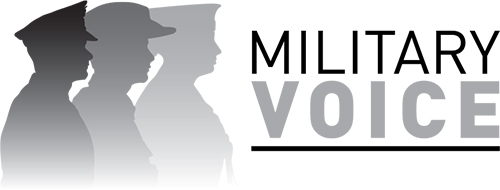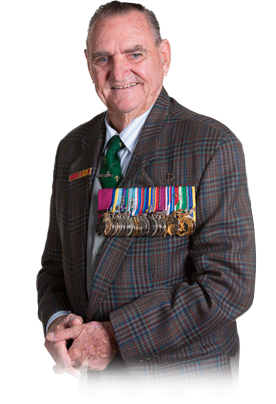The Centenary of Anzac has created a growing awareness of the issues facing today's diggers and what can be done to ease the plight of young men and women who are impacted by service to our country.
Australia's oldest living Victoria Cross recipient and outspoken advocate for veterans across all services, Keith Payne, believes he has an initiative that will help reduce the risks many who have been impacted by PTSD face in the first 18 months as they transition from service to civilian life.
Mr Payne, who turned 81 years of age last year, wants service men and women being discharged with posttraumatic stress to stay in-service till 2400 hours on the day that their claims for support with the Department of Veterans Affairs are finalised to avoid people falling into hard times and potential suicide.
He says the uncertainty between discharge and finalisation of claims for medical support, pensions or other assistance can add untold pressures to ex-servicemen and women and their families, and was a time when people find themselves in financial and emotional difficulties.
"Basically this is Defence and DVA working closely together so that all people who have a claim going (with DVA) remain in the military; are paid by the military; and their claims are completely processed before they leave the military, so that they don't go onto DVA's books and wait for 18 months fighting for their claims," Mr Payne said. "They remain in the military and at 2400 hours they take off the uniform because all the claims are completed - everything is completed. Then they go onto DVA's books."
While his proposal could not guarantee people suffering PTSD would not have difficulties within the Defence environment, or will make a difference to the many who suffer the onset of PTSD months or even years after service, Mr Payne believes mateship and financial stability would alleviate many of the concerns he hears from veterans, particularly the breakdown of families and the stresses that causes.
"I think the basic thing is the camaraderie, and they are getting paid. As it is now, they leave the Defence Force and they are fighting DVA. Most of them go onto the unemployed list and that's when we have that 12-18 months - a very dangerous period where suicides may occur."
"The military and DVA are working closer together now than they ever have before. But the next big step, and probably the final big step, is for the soldier to remain in uniform whilst his case is being put to DVA and finalised, right through to the review board if necessary."
Mr Payne also experienced difficulties with PTSD, both during and after his years in Army. "I myself suffered from - and still suffer from - PTSD. I have learnt to a certain degree, like a lot of veterans with the complaint, how to control it. In my case it was almost 15 years after I left the service but my wife tells me I had it all the time anyhow."
While Mr Payne's proposal could benefit those discharging from service with or because of PTSD, it does not address the many, like him, who suffer the onset of PTSD months or years after service.
Fortunately, there are organisations such as Soldier On providing a raft of support services to today's veterans who were wounded - physically and mentally - during their service.
Soldier On was created in 2012 by young veterans to provide practical support for their peers, while also making it easier for members of the Defence forces and the wider community, to show their support for those wounded in battle.
The self-funded charity aims to build on the support offered by the Australian Defence Force and other government and not-for-profit organisations by addressing gaps in the support available for Australia's wounded, serving and ex-serving.
The community can also play a big part in helping veterans and their families by simply being good neighbours. With Defence personnel and their families relocating for postings throughout their careers it can often be difficult to establish local networks and relationships. Many believe the benefits of neighbours taking time to introduce themselves and welcome defence personnel into the community can take a huge strain off of the family, especially when the serving member is deployed and either mum or dad is left to manage alone.
If you want to know more about Soldier On, or need support, please visit soldieron.org.au. You can also contact Lifeline on 13 11 14.








Leave Comment